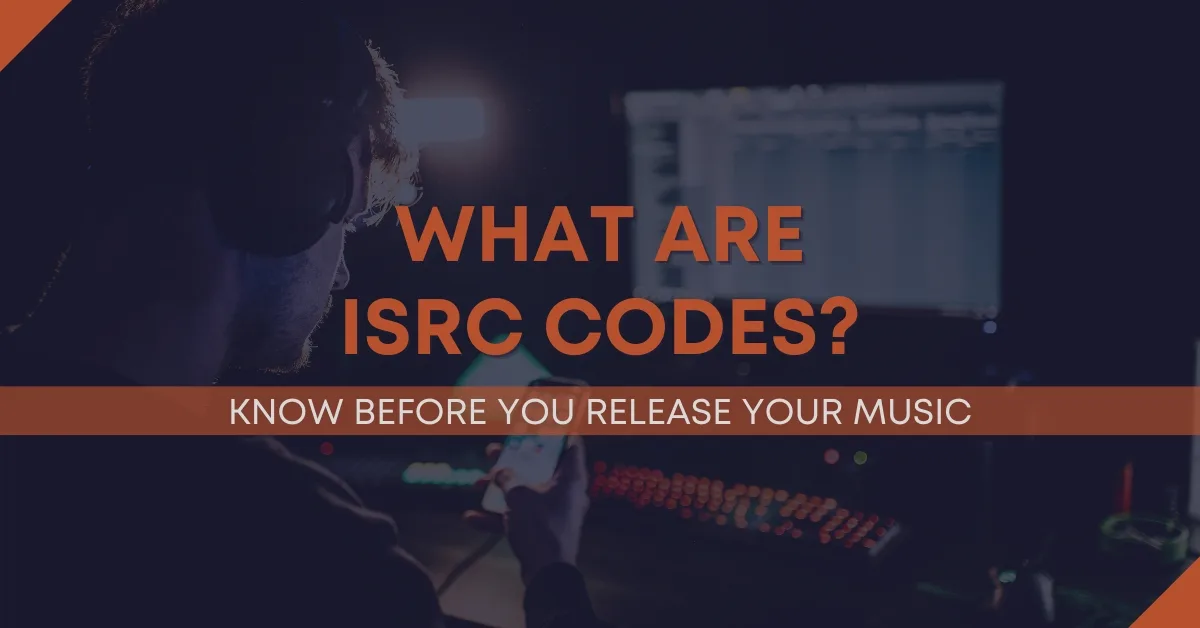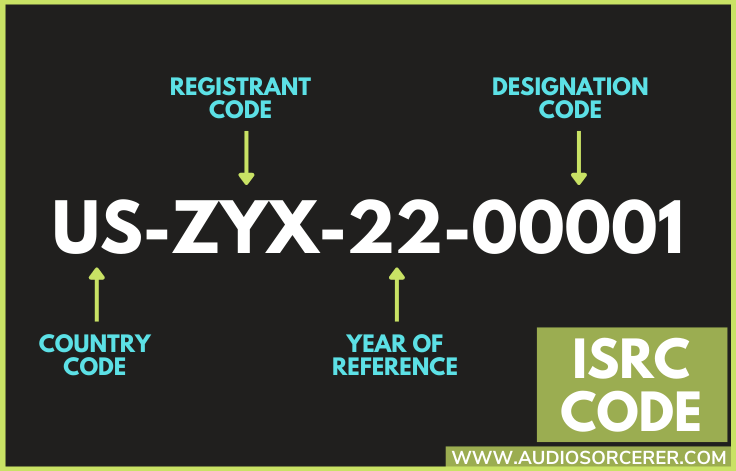
When it comes to releasing music, there are a lot of things to think about. For starters, you must make sure your music is mastered before it is released along with providing cover art and a track list. But, one thing you might not have considered are the ISRC codes.
What Are ISRC Codes? An ISRC code is a unique identifier for a piece of music. It’s like a fingerprint for your song, and it’s used to track plays and royalties. Every time your song is played on the radio, streamed online, or used in a TV show or movie, the ISRC code is used to identify your track and make sure you get paid.
You can think of it as a sort of social security number for your song. In order to release your music, you need to make sure each track has its own ISRC code. In this article, we will cover everything about ISRC codes and how to get them for your songs. So sit back and get ready to dive into the world of digital musical fingerprints known as ISRC codes.

ISRC codes are 12-digit identification numbers that are assigned to each track of a recording. They are used to uniquely identify a particular recording, and they can be used to track sales and other data about that recording.
ISRC codes are assigned by national ISRC agencies, and they are typically encoded into the metadata of a recording. They can be used for a variety of purposes, including royalty collection and tracking radio airplay.
If you are a musician or producer, you can use ISRC codes to keep track of your recordings and to get paid royalties for airplay and sales. If you are a radio station or music retailer, you can use ISRC codes to track the recordings that you play and sell.
When your song is played on the radio, streamed online, or used in a TV show or movie, the ISRC code is used to identify your track and make sure you get paid. ISRC codes are usually encoded into the metadata of your track, so when it’s played, the code is automatically sent to the performance rights organization (PRO) that represents you. They then use that code to keep track of how many times your song is played and make sure you get paid accordingly.

Knowing what are ISRC codes and how they work, leads us to the question of why are they important? ISRC codes are important because they help to ensure that artists and labels are properly compensated for their work. When a song or video is played, the ISRC code is used to track the number of plays. This information is then used to calculate royalties, which are paid to the artists and labels.
In addition to tracking plays and preventing piracy, ISRC codes can also be used to identify songs and videos for marketing purposes. For example, if you see a music video on YouTube with a certain ISRC code, you can use that code to find out more information about the song or video.
To recap, ISRC codes are important because they help to ensure that artists and labels are properly compensated for their work and to help identify songs and videos for marketing purposes.
So, can you release music without an ISRC code? Technically, yes - but it's not advisable and you can't release it on all platforms. ISRC codes are incredibly important for music distribution and promotion, so it's in your best interest to make sure your recordings are properly coded. Without an ISRC code, your music may not be eligible for certain royalties, and it will be more difficult to track your sales and downloads. In short, it's worth the effort to get an ISRC code for your music before you release it to the world.

Getting ISRC codes is not difficult at all and there are a couple of ways you can go about getting them. The easiest way to get them is through your distributor. You are already releasing your music through them so why not just get the ISRC codes also? It is important to note that you will pay a small additional fee for them. Below are my preferred music distributors.
By getting ISRC codes through a distributor, they will automatically insert them in your album's metadata. This is the information that is used to identify your album and its tracks when they are added to digital storefronts and streaming services. With these codes being a part of each track's metadata, you can take comfort in knowing your tracks will be properly identified.
Related Article: DistroKid Vs. CD Baby: Choosing The Right Music Distributor
Now you know what are ISRC codes and that they are an important part of releasing music. They help make sure you get paid when your music is played and also allow you to track your song’s data. Getting these codes is as simple as requesting them while you are in the distribution phase of your project. Music may be an art but it is also a business, so never leave any money on the table.
If you found the information in this article helpful, please consider subscribing to my blog for more music business tips, information, and advice. Now, go get yourself some musical digital fingerprints!
"Some of the links within this article are affiliate links. These links are from various companies such as Amazon. This means if you click on any of these links and purchase the item or service, I will receive an affiliate commission. This is at no cost to you and the money gets invested back into Audio Sorcerer LLC."